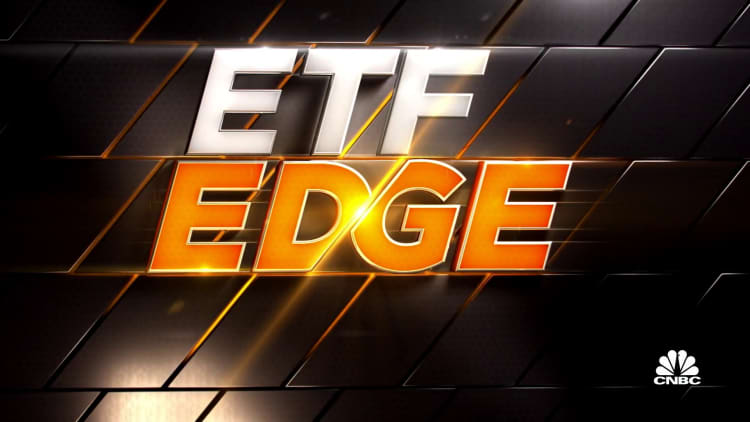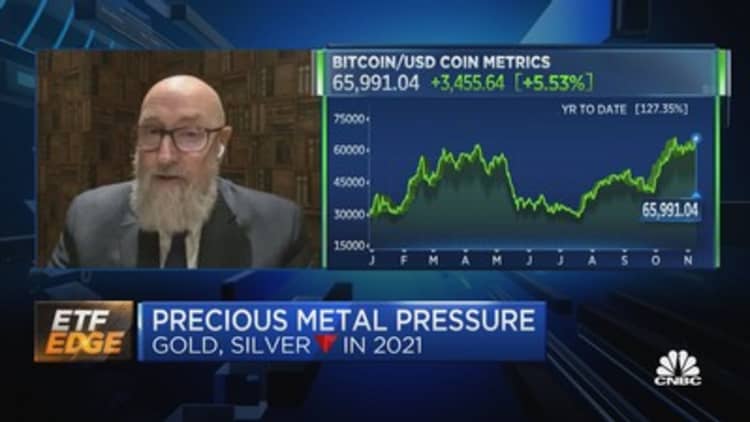
Not according to two of the world's leading gold authorities, but the cryptocurrency's rise is a phenomenon they can't help but acknowledge.
Bitcoin has outpaced gold substantially year to date, with the digital coin up nearly 133% and the yellow metal down about 4%.
The divergence calls into question whether investors are opting for bitcoin over gold as a hedge against rising inflation, but the strategist behind the world's largest gold-backed exchange-traded fund begs to differ.
"I think it is quite possible for these two assets to coexist quite happily in the market because they do completely different jobs," George Milling-Stanley, chief gold strategist at State Street's SPDR ETFs, told CNBC's "ETF Edge" on Monday.
The SPDR Gold Trust (GLD), the biggest ETF in the world backed by physical gold, will enter its 17th year in the public markets on Nov. 18. It is down almost 4.5% in 2021 and up around 281% since its 2004 launch.
"The historical promise of gold to investors has always been twofold: one, that over the long term — and I stress this, over the long term — gold can improve your returns and it can also help to reduce your volatility," Milling-Stanley said.
While gold has a track record of improving risk-adjusted returns over longer time periods — "the holy grail of any asset allocator" — digital coins carry more risk, increasing volatility and making returns subject to their often-drastic short-term swings, the strategist said.
That's why lasting inflation will likely draw gold back into favor, he said.
"Gold is a very good preserver of purchasing power during periods of sustained high inflation, by which I mean many months with inflation at over 5% a year. In those kind of periods, which we last saw sustained in the 1970s, then gold gave annual capital appreciation equivalent to about 16% a year or a real return of around 11%," he said.
"Right now, we've had inflation around 5% for maybe three or four months with everybody telling us it's transitory, it's going to pass, so I'm not at all surprised that gold hasn't responded to these inflation numbers just yet."
Bitcoin and other digital assets may be siphoning some capital away from gold, but it's too early to say if it's because they successfully hedge against inflation, GraniteShares founder and CEO Will Rhind said in the same interview.
The GraniteShares Gold Trust (BAR) is the fifth-largest gold ETF on the market by assets under management, according to ETF Database, and is also down around 4% this year.
"With the market cap of bitcoin and other cryptocurrencies, absolutely, they are attracting capital," Rhind said. "To the extent that they're attracting capital away from the gold market, though, I don't know."
"The reason why people are buying bitcoin and cryptocurrencies at the moment is highly speculative. That's a complete risk-on situation," he said. "It's less defensive in my mind. The reason why people are buying gold at this point is much more defensive. It's around the inflation story. It's around the long-term preservation of capital or purchasing power."
Gold prices hovered near two-month highs Tuesday after the Labor Department reported its producer price index rose 8.6% year over year in October, the highest annual rate in more than 10 years.






